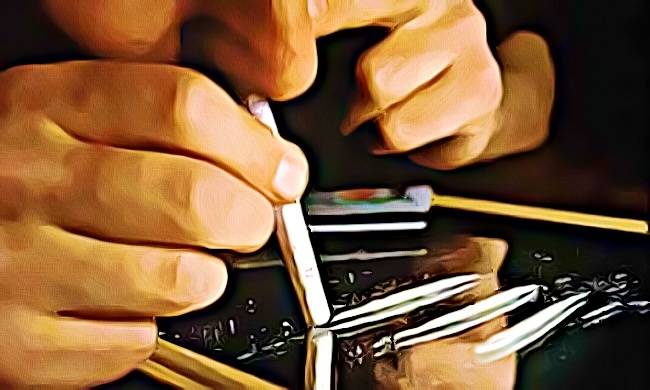Referred to as coke, crack, snow, white rock, and more nicknames, cocaine is notorious for getting its users addicted. This may be due to the drug’s stimulating effects, but what other people aren’t aware of is that they can alter a person’s brain functions in the long run.
People with cocaine addiction start using drugs repeatedly to get the adrenaline high that it gives. Serotonin and dopamine can improve your mind’s mood and increase the pleasure that the body experiences.
However, it can cause several short- and long-term side effects that can be tough to deal with, such as depression, brain damage, and an insatiable craving for drugs. If you know someone who has a cocaine addiction, it’s essential to connect them with resources to help them get better and back on their feet.
Cocaine withdrawal can be tough to go through due to the possibility of relapsing into drug abuse. There are so many factors that play into its difficulties, such as the symptoms, its side effects, and more. Anyone undergoing cocaine withdrawal should have the right people around them to remind them that they can get rid of their drug-abusing habits and become clean again.
It’s wise to know what the cocaine withdrawal process will be like to understand and prepare for the potential effects as you lend a hand to a person with cocaine addiction. Here’s what you can expect from withdrawing from cocaine use:
Cocaine Withdrawal Symptoms
Cocaine withdrawal symptoms often seem much more intensified than the effects of using cocaine because your body is searching for the stimulants again. There’s a set of physical and mental symptoms that may vary depending on how long a person has had their cocaine addiction, their age, genetics, and more.
The timeline can be a little different for the former users, but it often starts with a crash a few days after the last use of cocaine wears off, and the drug cravings aren’t as intensified yet. Throughout the withdrawal process, more and more of these symptoms may start showing as they begin to crave cocaine again.
Here are some of the withdrawal symptoms you should look out for:
Physical Withdrawal Symptoms:
- Muscle Weakness – Many drugs in someone’s systems can affect the body’s musculoskeletal system, which can cause sudden muscle aches.
- Body Nerve Pain – As cocaine does provide stimulation, withdrawal can mean the body’s nervous system has to learn how to be independent of the drug again.
- Sleep problems – Some people who experience cocaine withdrawal report constant drowsiness, while some report getting sleep deprivation.
- Shakiness – The body can respond to cocaine withdrawals with sudden or constant tremors to cope with the lack of stimulation.
- Sluggishness – A person going through cocaine withdrawal may develop an aversion to any physical activity and create slower reflexes as a result.
- Palpitations – For more extreme cases of cocaine withdrawal, someone may experience heart palpitations or heart attacks.
- Seizures – Grand mal seizures can be life-threatening, depending on how violent the muscle contractions experienced are.
Mental Withdrawal Symptoms
- Anxiety – Cocaine withdrawal can cause your brain to have many intrusive thoughts and intense stress as a reaction to the lack of stimulation.
- Depression – Without serotonin and dopamine, someone undergoing cocaine withdrawal will feel a phase wherein their mood just starts to crash.
- Paranoia – Paranoia and panic attacks may start to arise when withdrawing from cocaine use, with some even hallucinating as the brain tries to recover.
- Restlessness – There can be an intense period of agitation when someone starts craving or searching for the high that cocaine usually offers.
- Irritability – Anyone undergoing cocaine withdrawal can be easily irritable and feel constant discomfort for a good while.
- Nightmares – Most of these unwanted nightmares can be vivid and disturbing, making it harder to sleep.
- Loss of Concentration – Some may find it hard to concentrate on one thing, while others will just be completely unable to focus.

Cocaine Side Effects
Cocaine withdrawal also means having to deal with the side effects of previous cocaine use. Some effects may only occur for a short time upon use, like abdominal pain. But you can develop some health problems for more extended periods as a result of cocaine addiction. These depend on the length of time and the way a person ingested cocaine.
Here are some notable side effects of taking and using cocaine:
- Comas – Cocaine use may incite heart strokes and headaches that just force a person to undergo periods of coma.
- Psychosis – Cocaine-induced psychosis can cause a person to have an episode of delusions and hallucinations.
- Lung Damage – People who use cocaine can experience some breathing problems as they experience respiratory complications and lung swelling.
- Digestive Problems – People who use cocaine may see signs of gastrointestinal diseases and acid reflux as their body experiences difficulty digesting.
- Parkinson’s Disease – There is a chance that cocaine users may develop Parkinson’s disease and inadvertently have their children inherit the same brain disorder.
- Cardiac Arrest – In severe cases, using cocaine can just cause the heart to stop working and cause sudden death.
Cocaine Lifespan in Your Body
Cocaine can stay in your system after use for a long time, depending on the person’s hydration level, metabolism, age, and more. A urinalysis or urine drug test is often carried out to detect if someone had used cocaine recently.
How long does cocaine stay in urine? The metabolites of cocaine can be traced and detected three days after use. However, long-term users will find that cocaine stays in their urine for 1-2 weeks after use.
There are many factors that can affect the lifespan of cocaine in your body and how quickly you can excrete it, such as fatty tissues and certain beverages. Alcohol and caffeinated drinks like coffee and tea can hinder cocaine from exiting your body and often bind them to you.
Cocaine Recovery
Anyone undergoing cocaine addiction should know that they can still find treatment and recover. Finding a treatment center can help provide them with the best facility to help condition them into a life without cocaine use and oversee your cocaine withdrawal process.
Talk to people in a support group who are undergoing the same problem. This may help someone with cocaine addiction be much more open about their ordeal. They will hopefully remember that they aren’t alone in trying to get better.
Rehabilitation also includes counseling and relapse prevention education. Discussing with a professional and learning how to manage some of the psychological effects that cocaine withdrawal may incite can be beneficial in your or your loved one’s journey to recovering from cocaine use.
Conclusion
In summary, cocaine withdrawal and the symptoms can be different for many users when going forward, as it can stay for your system for a good while. Find a sound support system and medical professionals who will be able to extend help and provide aftercare planning. This is so that you can control yourself from addiction and have a grip on your life once again.
Sources:

